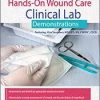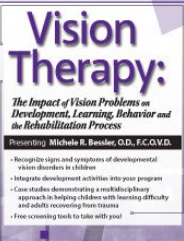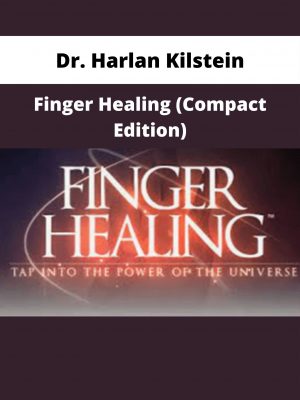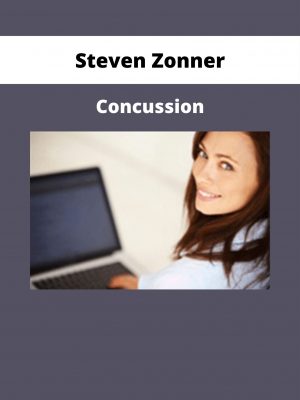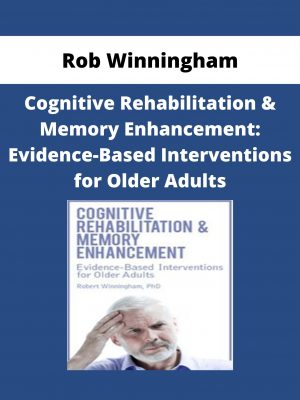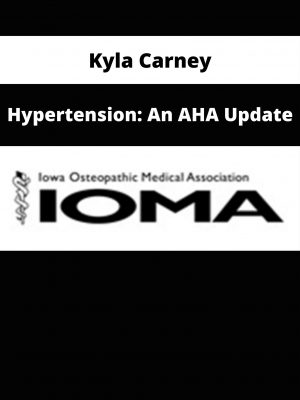Michele R. Bessler – Vision Therapy
$219 Original price was: $219.$62Current price is: $62.
Shopping Instructions:
- DISCOUNT 15% : SHOP15
- Product Delivery: Within 1 – 12 hours after purchase.
Acquired vision disorders are also extremely common in the population of patients who experience closed head trauma.
Michele R. Bessler – Vision Therapy
- Understanding Vision Development and Its Relationship to Learning and Behavior
- Vision as a total process combining sensorimotor, perceptual and cognitive functions
- Signs and symptoms of developmental vision disorders in school-aged children
- Commonly seen vision disorders in children with developmental delays and other special needs (autism spectrum disorders, AD(H)D, cerebral palsy)
- Current research in vision development
- Integrating Developmental Vision Strategies with Children
- Vision screening techniques to identify children with undiagnosed vision disorders; Free screening tools to take with you!
- Vision development activities to integrate into your program
- Recommendations for optimal visual performance in the classroom
- Impact of Vision Therapy in Treating Underlying Vision Deficits on the Child and the Family
- Traumatic Brain Injury and Its Impact on the Visual System
- How acquired vision disorders interfere with the rehabilitation process and prevent full recovery after head trauma
- Double vision, visual field neglect, Post-Trauma Vision Syndrome (PTVS), dizziness
- Impact on balance and movement
- The role of specialized lenses, prisms and vision rehabilitation therapy
- Case Studies
- Demonstrations of Vision Therapy Activities
Would you like to receive Michele R. Bessler – Vision Therapy ?
Description:
- Recognize signs and symptoms of developmental vision disorders in children
- Integrate development activities into your program
- Case studies demonstrating a multidisciplinary approach in helping children with learning difficulty and adults recovering from trauma
- Free screening tools to take with you!
The visual system plays a critical role in the development of academic skills, including:
reading, writing, mathematics, and is a precursor to higher level cognitive abilities. Delays in the development of various visual functions have a significant impact on a child’s ability to reach their academic potential, and results in emotional, attentional and behavioral problems when left undiagnosed and untreated.
Acquired vision disorders are also extremely common in the population of patients who experience closed head trauma. Unresolved vision deficits have a significant impact on their rehabilitation process, as the visual system deficits often interfere with balance, movement and thinking.
You will learn the types of developmental vision deficits which often occur in the school-aged child, as well as the acquired vision deficits which occur in the TBI population.
You will learn signs and symptoms of vision problems as well as easy-to-implement screening strategies. Treatment modalities will be discussed, including how lenses, prisms and vision therapy services can resolve these deficits. Additionally, case studies demonstrating the importance of a multidisciplinary approach in helping children with learning difficulty and adults recovering from trauma will be included. Hands-on demonstrations allow you to synthesize the impact of vision disorders on the total human system and experience how vision therapy can help direct and guide the visual development/rehabilitation process.
Related products
HEALTH & MEDICAL
HEALTH & MEDICAL
HEALTH & MEDICAL
HEALTH & MEDICAL
Bernadette Giorgi – Attitude Ballet & Pilates Fusion – Just B Method
HEALTH & MEDICAL
Regina Meredith – Conscious Media Network with Regina Meredith – Eric Pearl on The Reconnection
HEALTH & MEDICAL
HEALTH & MEDICAL
HEALTH & MEDICAL

